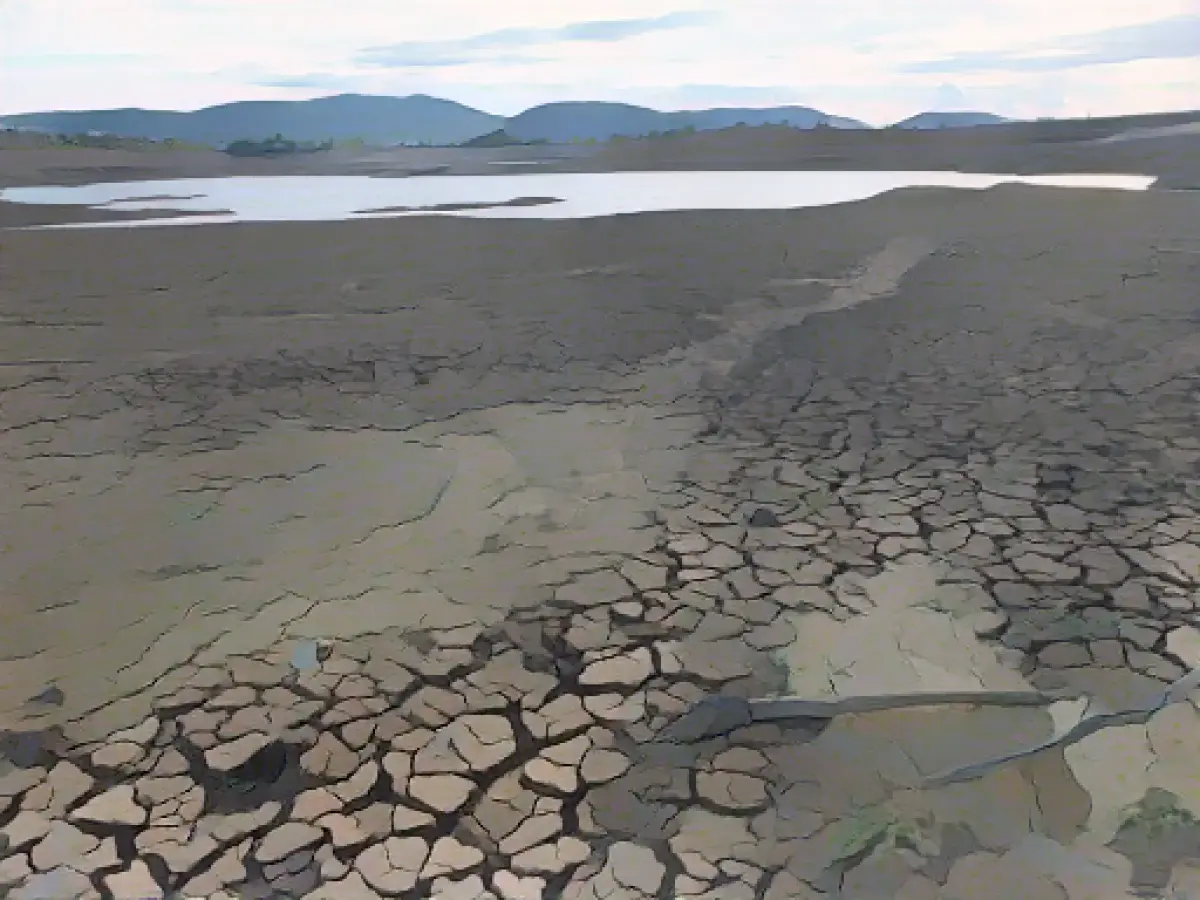Turkey struggles with climate crisis - Bodrum resort without water
The once impressive reservoir is now just a shadow of its former self. It lies shrunken in the middle of dried up and cracked earth in the east of the Turkish vacation resort of Bodrum. A measuring pole gives an idea of how high the water once stood, rising up empty. The Mumcular dam and another reservoir in the region have been closed since mid-October and have become a symbol of the water shortage in the region.
This was not noticeable for tourists at first, only after the end of the season was the water in Bodrum turned off, sometimes for hours at a time. The municipality opened up new wells and carted drinking water to the residents in tanks. Although it now rains from time to time, there is already great concern about next summer. Bodrum's population multiplies during the vacation season - the municipality estimates that one million people need to be supplied with water.
Water shortage has been an issue for 30 years
"In view of the drought, we are experiencing a water shortage unprecedented in our history," warned Mayor Ahmet Aras recently. Mirbahattin Demir, spokesperson for the environmental organization Mucep in Bodrum, points out that water scarcity has been an issue in the region for 30 years, but that it has reached a "completely different level" due to climate change. Home-made problems are exacerbating the situation.
Bodrum is like a magnifying glass for the situation in many parts of Turkey. In addition to the Aegean, the Marmara region is particularly affected by drought. The dams around Istanbul are at an all-time low. Turkey struggled with severe heat in the summer. Temperatures were still above normal in some places well into November.
Heat causes soil water to evaporate
The drought has been going on for a year now, and the increased evaporation of soil water due to the heat is exacerbating the drought, says Baris Önol, meteorology professor at Istanbul Technical University. However, the expected precipitation has so far failed to materialize. "If this winter is as dry as the last one, it will be difficult to survive the summer of 2024," he says. This will also have a negative impact on the cultivation of fruit and vegetables.
There have been dry periods before. "The real problem is that the droughts follow each other." In his opinion, the media and government must constantly call for thriftiness and provide information about this, as the following applies to drought: "By the time you feel it, it's already too late."
He expects little from political meetings such as the COP 28 world climate conference in Dubai next week. Climate change is primarily an economic problem and Turkey must also switch its production completely to renewable energies.
Turkey has signed the Paris Climate Agreement and wants to achieve climate neutrality by 2053. The share of solar and wind energy together amounted to 16 percent last year, plus around 20 percent hydropower. President Recep Tayyip Erdogan repeatedly puts the issue of climate change on the agenda in view of extreme events such as heat and flooding. However, his government is also criticized for pushing ahead with large-scale construction projects and the sealing of land. When environmentalists protested in the summer against the deforestation of the Akbelen forest, which had to make way for a lignite-fired power plant, Erdogan also made it clear that he did not want to do without coal.
Around 30,000 private pools
The deforestation of the forest in Akbelen has in turn exacerbated the water shortage in Bodrum, says environmental activist Demir. According to official figures, around 18 million cubic meters of water were used in Bodrum last year. Around nine million of this was extracted from the groundwater in Akbelen and has now been lost, according to Demir. The water from the dams is also used to cool three coal-fired power plants in the region. These should be shut down and replaced by solar energy, he demands.
Excessive water consumption by private pools and lawns is another home-made problem. According to the municipality, there are around 30,000 pools in Bodrum. The mayor called on the owners not to empty them this winter, but to use the cleaned water again. This would save 4.5 million cubic meters of water. However, the municipality has so far refrained from imposing a ban.
According to Demir, the fact that new wells are constantly being dug is only a temporary solution and exacerbates the problem in the long term. He fears that excessive extraction of groundwater could cause the drinking water to become salty. At the latest then Bodrum would also suffer as a tourist destination.
The water crisis in Bodrum is not just an issue for the local climate, but it also has implications for the region's thriving tourism industry. With millions of tourists expected during the summer, ensuring a sufficient water supply becomes a significant challenge.
At the world climate conference, Turkey's commitment to climate neutrality by 2053 is commendable, but challenges remain in implementing renewable energy sources and addressing issues like deforestation and large-scale construction projects.
[Source: www.dpa.com]
Source: www.dpa.com






